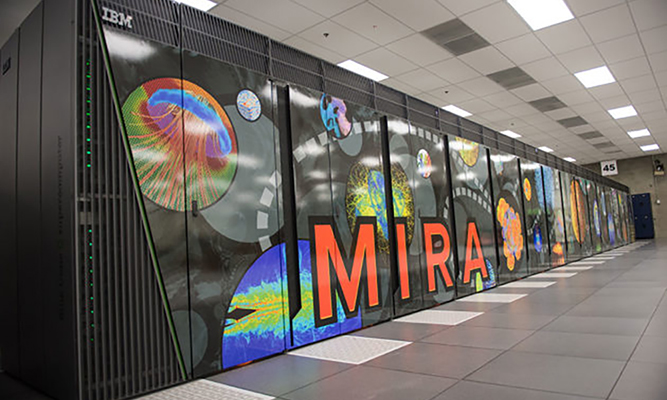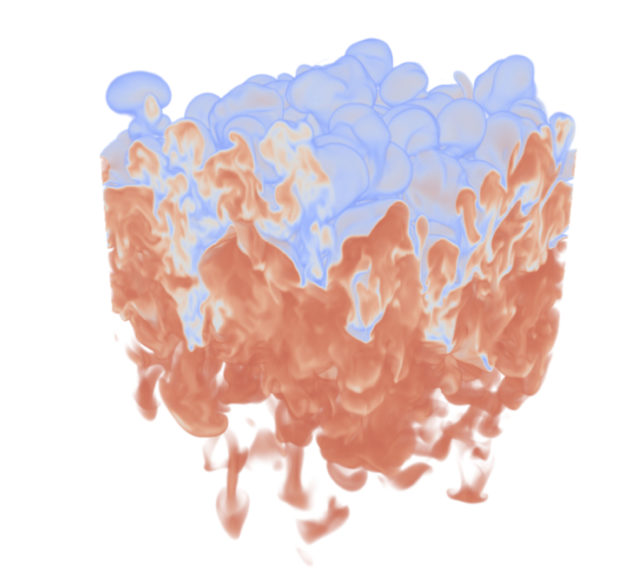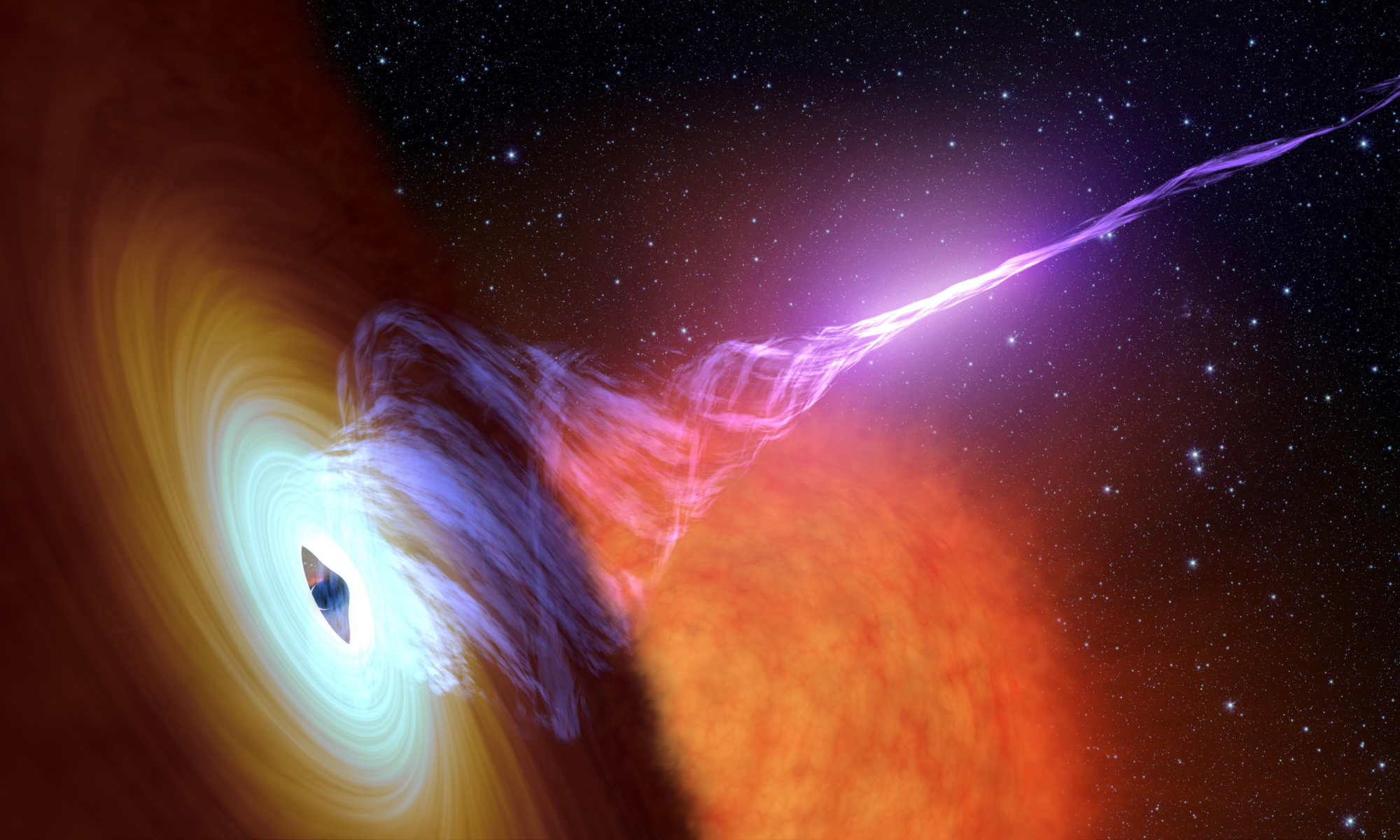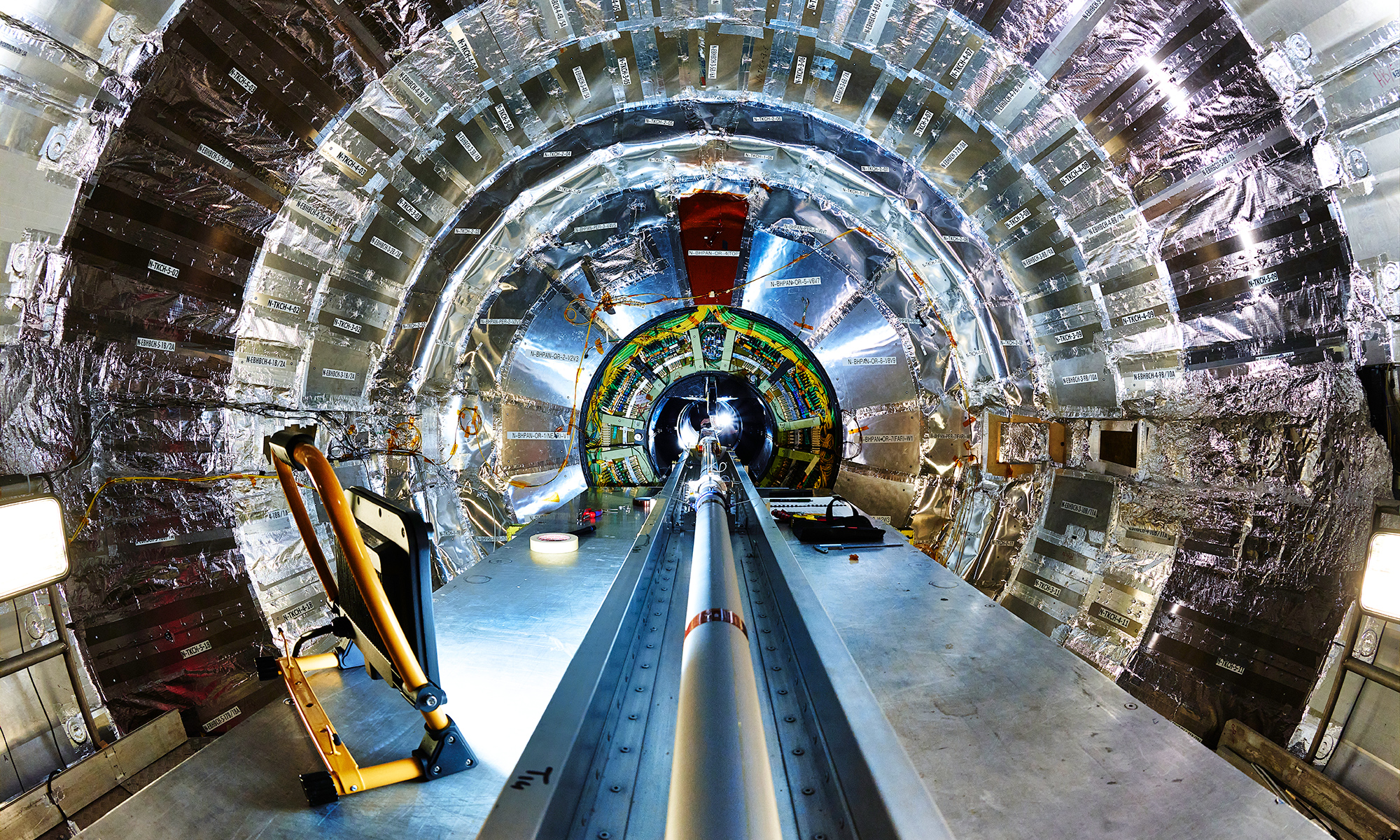
(Argonne National Laboratory photo)
Most academic grants come with money, but Hussein Aluie has received a research boost that money can’t buy.
The assistant professor of mechanical engineering at the University of Rochester has been awarded access to Mira—a supercomputer at Argonne National Laboratory in Illinois—to conduct massively parallel simulations. The award would allow Aluie and his team to utilize 300,000 computers simultaneously to run one of their proposed simulations in under four days, when it would take a desktop computer more than 2,000 years to complete.
Aluie’s is one of 55 projects awarded computing time through the U.S. Department of Energy’s Innovative and Novel Computational Impact on Theory and Experiment, or INCITE, program.
According to Michael Papka, a director at the Argonne facility that houses the computer, “These computational projects represent the biggest challenges in science and engineering.”
Aluie, who studies fluid dynamics, leads the University’s Turbulence and Complex Flow Group. Their project includes running codes to develop a computer model of fluid instabilities that occur during inertial confinement fusion, or ICF. ICF has significant potential as a form of clean energy, but as Aluie points out, “Understanding these instabilities that occur are some of the major barriers for us to realize nuclear fusion as an energy source.”

One processing hour amounts to one hour taken by a single computer to finish a task. A typical simulation on Mira running for 1 hour on 100,000 computers—or core processors—simultaneously, ends up consuming 100,000 processing hours.
This award grants Aluie and his team 47 million processing hours.
In June, Mira was rated the sixth fastest supercomputer in the world, capable of carrying out 10 quadrillion calculations per second on its nearly 800,000 core processors. By comparison, the typical personal computer runs on two core processors.
Aluie and his Complex Flow Group, composed of two University post-docs and three PhD students, will control from computers in Rochester the programs they run on Mira at Argonne. In applying for the award, they were required to establish the efficiency and speed of their code, and that they would be able to get the results they were seeking within the time frame of hours allocated.
“We had to demonstrate that we have the experience and personnel in place to run these codes and projects and that the science is worth it,” Aluie says.
The award carries the possibility of an additional 90 million processor hours in 2018. According to the INCITE program, “the average INCITE award of time for a single project is equivalent to several million dollars.”




